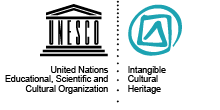Revitalization of the traditional craftsmanship of lime-making in Morón de la Frontera, Seville, Andalusia
Selected in 2011 on the Best Safeguarding Practices
Country(ies): Spain
Identification
Description
The traditional practice of lime-making was a source of employment for Morón de la Frontera and a marker of its identity. When production was eclipsed by industrial lime, kilns fell into disuse and transmission of knowledge ceased. The project’s primary goals are to raise awareness of the practice and importance of lime-making and to improve living conditions for craftspeople. To this end, the Cultural Association of the Lime Kilns of Morón was established, and gave birth to an ethnographic centre and a living museum that displays the craft process in situ. Kilns have been restored and the project actively promotes transmission of techniques to new generations. Outreach activities in cooperation with lime craftspeople focus on recovering expertise and techniques for use in sustainable construction. The project has also produced audiovisual and print publications, presented displays at trade shows and is organizing the Iberian Lime Congress in 2012. The Association has been involved in a national project to raise awareness of fresco painting, as well as an international project ‘Transfer to Morocco (North Africa) of the Crafts Promotion Centres model’. The project has involved stakeholders and inhabitants of Morón de la Frontera in its decision making.
Documents
Decision 6.COM 9.11
The Committee (…) decides that, from the information provided in the proposal, [this Programme] responds as follows to the criteria for selection in Paragraph 7 of the Operational Directives:
- P.1: The safeguarding process for this traditional craft practice, the broadening of its knowledge base, its widespread dissemination, outreach programme, awareness building and revitalization have followed a coherent, methodical and logical process, aimed at ensuring the viability of the element and strengthening its place in the social sphere;
- P.2: The proposal demonstrates already existing coordination on the national level as well as ongoing international cooperation with Morocco;
- P.3: The project reflects some of the objectives of the Convention by mobilizing the support of the State administration and providing for legal protection of lime-making and conservation of tangible aspects of this heritage;
- P.4: The revitalization strategy of utilizing traditionally produced lime in restoration of heritage sites and in new building is evidently supported by the State, and the project demonstrates a well-considered effort towards sustainable development of lime-making, including revenue generation for the craftspeople;
- P.5: The programme depends upon the participation of the bearers of the element, the traditional lime-burners and the wider community of local residents, and evidence of free, prior and informed consent is appended from the individuals, groups, institutions and members concerned;
- P.6: The programme can serve as a viable model of a complex safeguarding strategy as it raises awareness of locations where crafts must be safeguarded and promotes local development, integrating cultural, economic and historical concerns;
- P.7: The association of stakeholders and administrators affirmed their commitment to the project and expressed their willingness to spread this practice nationally and internationally, if selected;
- P.8: The programme can be concretely assessed by following activities undertaken for advocacy and dissemination and training of apprentices, analysing the economic impact for the trade and the increased awareness of the local population;
- P.9: The programme is replicable and adaptable to developing countries with similar contexts as it also benefits the environment and sustainable development.
Selects Revitalization of the traditional craftsmanship of lime-making in Morón de la Frontera, Seville, Andalusia as a programme, project or activity best reflecting the principles and objectives of the Convention;
Invites the State Party to increase cooperation with other countries that have similar construction techniques or lime-making traditions.

